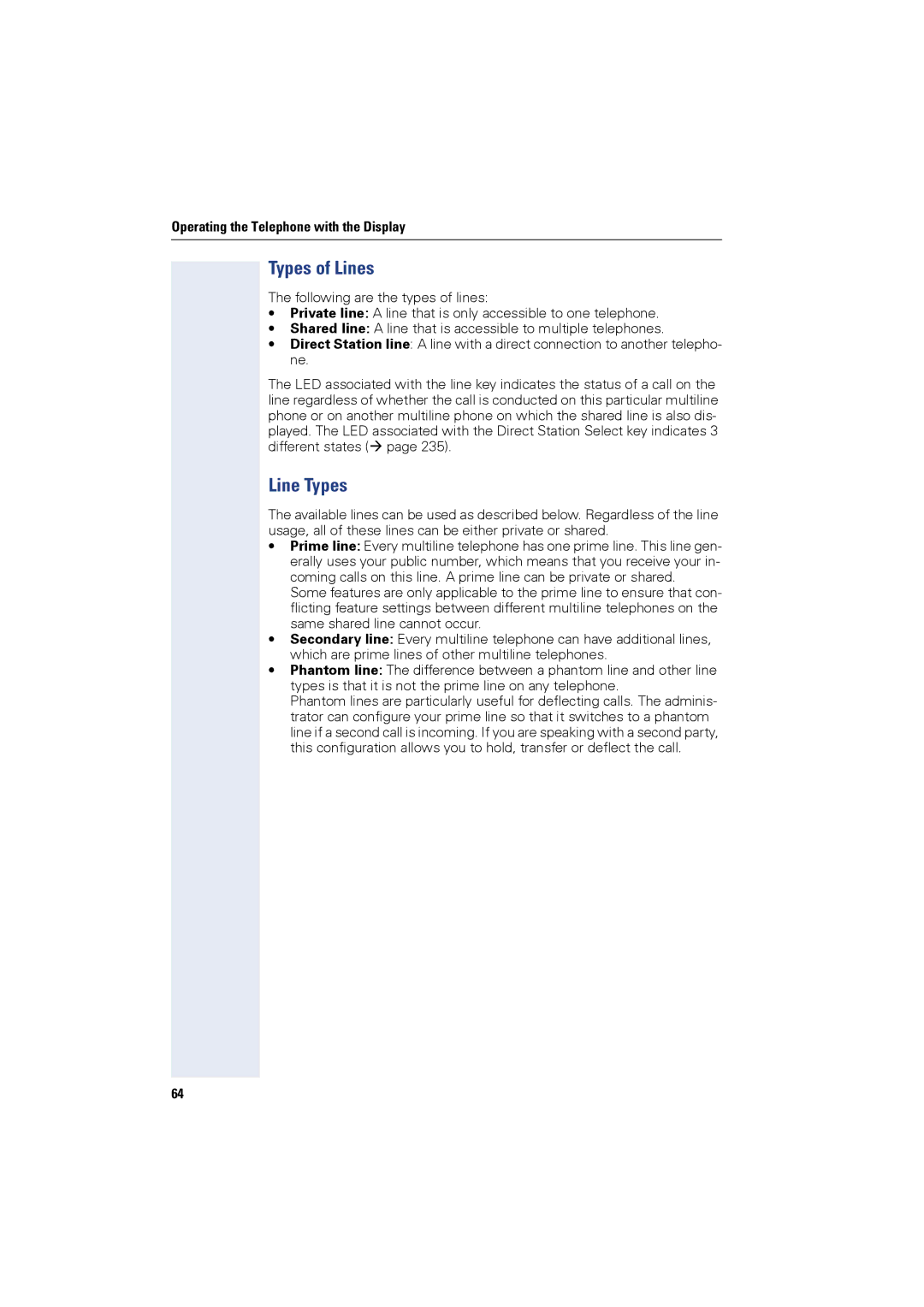
Operating the Telephone with the Display
Types of Lines
The following are the types of lines:
•Private line: A line that is only accessible to one telephone.
•Shared line: A line that is accessible to multiple telephones.
•Direct Station line: A line with a direct connection to another telepho- ne.
The LED associated with the line key indicates the status of a call on the line regardless of whether the call is conducted on this particular multiline phone or on another multiline phone on which the shared line is also dis- played. The LED associated with the Direct Station Select key indicates 3 different states ( page 235).
Line Types
The available lines can be used as described below. Regardless of the line usage, all of these lines can be either private or shared.
•Prime line: Every multiline telephone has one prime line. This line gen- erally uses your public number, which means that you receive your in- coming calls on this line. A prime line can be private or shared.
Some features are only applicable to the prime line to ensure that con- flicting feature settings between different multiline telephones on the same shared line cannot occur.
•Secondary line: Every multiline telephone can have additional lines, which are prime lines of other multiline telephones.
•Phantom line: The difference between a phantom line and other line types is that it is not the prime line on any telephone.
Phantom lines are particularly useful for deflecting calls. The adminis- trator can configure your prime line so that it switches to a phantom line if a second call is incoming. If you are speaking with a second party, this configuration allows you to hold, transfer or deflect the call.
64
